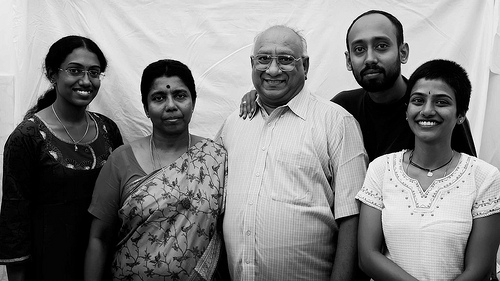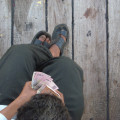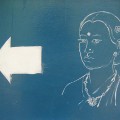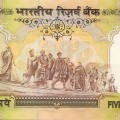
I was visiting an American friend who told me about an Indian colleague of his. I asked him what the colleague’s name was.
“I don’t remember exactly. Something like Vinny Submarine.”
Oh, you mean Vinay Subramanian?
“Yeah, that’s right.”
From Tamil Nadu? Highly educated? Vegetarian?
“Uh…yes, actually. How did you know that?”
This is one of the most amazing skills you can pick up when you are working with Indians. A person’s name unlocks a trove of potential connections and ways to build rapport with them.
Why names are important in India
When we looked at good small talk topics in India, I said…
…small talk is an investigation. Your conversation partner is trying to piece together something about you. Who are your parents? What do they do? Where do you work? Where did you go to college? How many children do you have? What is your wife’s name? Do you have brothers and sisters?
When Indians talk to each other, they don’t need to ask so many questions, because just one clue can provide a vast amount of data: the name.
Names are important in India because they represent your primary community. They reveal the region of India you’re from, your mother-tongue, your religious community, and much more. From this, people make assumptions based on generalizations such as how educated you are (even South Indian housewives have Master’s degrees), what you had for breakfast (Delhi-ites can’t live without a nice paratha), what your wedding was like, and a million other things.
I have one Indian mentor who, before I am allowed to explain my sticky situation to him, always asks for the name of the person I’m dealing with so he can have a more complete context of the situation. And his advice is usually spot-on.
Contrast names of India with Western names, which don’t reveal much of anything.
I was at an event with both Indians and Americans in attendance. I met an Indian whose name was George Mathew. I started talking about my wish list of things to see when I get to Kerala next year. We immediately got into a great conversation.
Then I met a young American whose last name was Ludke. Overzealous with my new skills, I tried to start a conversation. I know some Ludkes. Where is your family from?
“Uh, Germany, I think?”
No, I mean your parents.
“Oh, Michigan, mostly,” he said hesitantly, clearly creeped out.
That conversation went nowhere fast.
Why you should learn Indian names
At first, it may seem overwhelming for an outsider to consider learning about Indian names. However, you will quickly see the benefit.
Number one, if you can correctly identify someone’s primary community by their name, they will be super-impressed at your Indian knowledge and you will score big points.
Number two, you will be able to better direct the small talk, which will lead to better rapport, and perhaps getting in their circle. (Which is another reason to educate yourself on the different Indias that exist.)
As you try your hand at this, keep a couple of things in mind:
- Their name shows where their roots are, not necessarily where they are from. Although you may spot a Rao as a Telugu, their grandparents may have moved to Bombay and now have no connection to Andhra Pradesh.
- Use generalizations, not stereotypes in conversation. Otherwise you will make a fool of yourself.
A Handy Guide for You
I have attempted something that is much bigger than my ability to produce. It is a naming guide for outsiders to be able to identify an Indian’s primary community just from their name. This information would easily take you ten years to figure out on your own.
As you can imagine, it is a much bigger task than I can do on my own. So, I’ve started a page dedicated to deciphering names, and I invite all readers to comment and contribute. If you, or someone you know, has a very ‘typical’ name from a certain part of the country, please mention it in the comments.
There are several areas that need a lot more coverage, so please give as many suggestions as possible.
Click here for the link to the page (also found in the ‘References’ tab).
P.S. If you are really technically minded, check out this software developed by a German scholar working in Lucknow:
https://data.raphael-susewind.de/content/algorithm
Image Credit: Chentil Mohan on Flickr





Beautiful post…Loved reading each and every word….Thank u for such a wonderful share…
I like it! Thank you. You are spot on. You may be interested in this post I did on common names in Kerala (at least based on those who have attended my training programs.
http://blog.authenticjourneys.info/2014/09/common-names-in-kerala-india.html )
In Kerala many people use initials, so getting something like Bala Subramaniam is rare. They may sign in as BK Subbu or Subbu BK. Many people use nicknames at work, too. So it’s often hard for me to know if their sign in is their official name or nickname. I have to compare it agains the HR logs at times.
Kerala is interesting because sometimes it’s not always so easy to tell someone’s religion or food habits from their name as it may be in Chennai. My sister in law who was a teacher in Kerala had a kid in her class named Krishna who was a Muslim! People kind of mix and match names/religions and also now a days use a lot of foreign names. A client of mine who are Hindus asked me about using the name Michelle- how to spell and pronounce it! I am sure she wouldn’t go by her full name in Kerala but something with the initials at the beginning or end like GK Michelle or Michelle GK.
For several generations some sections of Keralites have been dropping typical caste surnames (caste doesn’t only go for Hindus at times) so that by name alone you can’t judge so much about a person.
For example, Sajitha is a common name in Kerala for girls, Sajith for boys. I always thought this was a Hindu name, but recently I heard this name was borrowed from Muslims in the Middle East. As Kerala has a long history of people from the Middle East visiting and vise versa, many people have Middle Eastern names regardless of religion (though most Middle Eastern names are Muslim). And, to add to that many Keralite Hindus eat beef (known as water buffalo, but the dish is called beef fry).
Ugh, no thanks. As an Indian, if someone made assumptions about me based on my name, I would be super offended. And I will do my best to make zero assumptions about you as well.
Thanks for the honest feedback. I wouldn’t want anyone to use this information to make assumptions, only to provide a starting point. I haven’t found someone to be offended if I see their name is Menon and I ask if their family is from Kerala. It’s not about stereotyping, but having a frame of reference.
My opinion is that we are already making assumptions about people before we meet them. It’s better to at least have a more accurate assumption that you can refine later after getting to know them.
Let me know what you think of this article:
http://learningindia.in/generalizations-and-stereotypes/